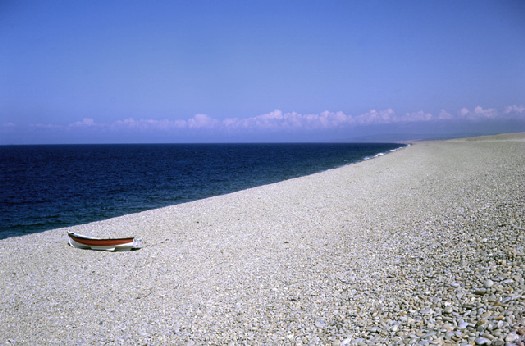 The answer its seems – as with the number of stones on Chesil beach (above) – is lots.
The answer its seems – as with the number of stones on Chesil beach (above) – is lots.
The election in Greece of a government committed to keeping the nation that founded democracy in an undemocratic European Union with the Euro as its currency has brought about a rally in the financial markets.
Tommy Stubbington of the Wall Street Journal writes; “Euro-zone government bond markets breathed a sigh of relief Monday after pro-bailout parties won a slim majority in Sunday’s Greek election, heading off the immediate threat of a disorderly Greek exit from the single currency, but an early rally quickly began to fade as analysts warned that the positive mood could be short-lived. Bonds rallied in Spain and Italy, two countries recently under sustained market pressure, while Greece’s own government bonds also staged a rally. Still, moves were relatively modest, with Spanish and Italian yields remaining at levels considered unsustainable in the long run, and Greek bond prices still implying a hefty chance of further default.”
The cruel irony of the Greek tragedy of course is that any increase in the value of the Euro or the maintaining at levels around the current, is precisely what the Greek economy DOES NOT NEED. In fact, Greece needs the Euro at its present level like a hole in the head!
The ONLY way that Greece can stage any form of economic recovery is for that nation to reacquire sovereign control over its own affairs and for it to go back to the Drachma. Of course, the Drachma will plummet through the floor of the foreign exchange markets. But it is only this harsh medicine that will allow the Greek economy to recover. Greece has a large public sector but can only collect a fraction of the actual tax revenues that are owned. The public sector of course for the most part does not create wealth, it consumes it. For Greece to succeed her business sector must sell its goods and services abroad. Maintaining Greece within the Eurozone prevents this. And, bye the bye, tourists going to Greece on holiday and spending their money there (which is precisely what would happen if Greece was to go back to the Drachma) are regarded by economists as “invisible exports.”
Speaking the Truth unto the Nation
